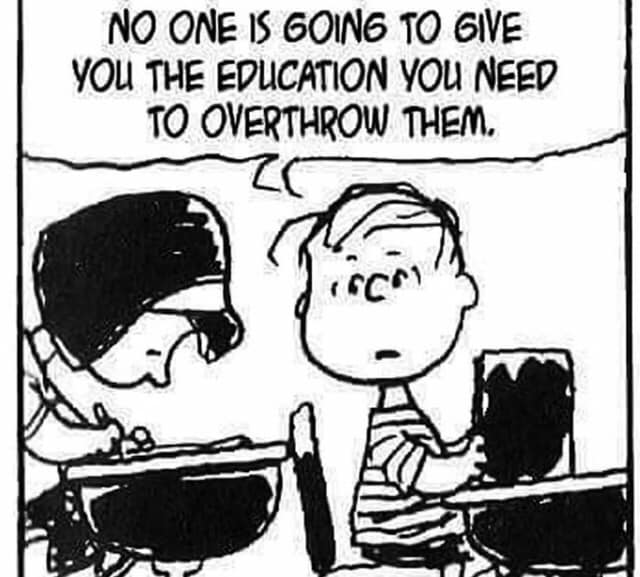This is item 01 in Marx in “Who Shall Survive?” Monograph
The first time Moreno mentions Marx in Who Shall Survive?, is in the Preludes of the Sociometric Movement (1978; xiv, xv)
The advent of sociometry cannot be understood without appraising my presociometric background and the historic-ideological setting in the Western world, during and after the First World War. Marxism and psychoanalysis, the two opposites, each had spent their theoretic bolt, the one with Nikolai Lenin’s “State and Revolution” (1917), the other with Sigmund Freud’s “Civilization and Its Discontents” (1929). The two opposites had one thing in common: they both rejected religion, they both disavowed he idea of a community which is based on spontaneous love, un-selfishness and sainthood, on positive goodness and naive cooperativeness. I took a position contradictory to both, the side of positive religion.
Moreno makes it clear he is not creating his work in a vacuum. Freud and Marx are the ideological setting in the Western world, during and after the First World War. Moreno says “The two opposites had one thing in common: they both rejected religion”. Moreno took the side of positive religion.
Marxism is indeed the context for much of Moreno’s work (Freud, to a lesser extent, though this monograph is not about Freud.) Moreno states Marxism rejected religion, (by referencing Lenin.) and himself being on the side of positive religion. We will look at these two statements in more detail. Then, since Moreno mentions Lenin we will look into State and Revolution.
Marx and Religion.
Lets look at Marx’s famous opiate of the people statement.
It’s so beautiful to see the ‘opiate of the people’ quote in its context. It’s helpful for me to rewrite it a little to remove the old gendered language, I’ve done that in this passage. The italics are in the original.
Humans create religion, religion does not create humanity. Religion is, indeed, the self-consciousness and self-esteem of a humanity that has either not yet won through to itself, or has already lost itself again. But we are not abstract beings squatting outside the world. We live in the world we create – state, society. This state and this society produce religion, which is an inverted consciousness of the world, because they are an inverted world. Religion is the general theory of this world, its encyclopaedic compendium, its logic in popular form, its spiritual point d’honneur, its enthusiasm, its moral sanction, its solemn complement, and its universal basis of consolation and justification. It is the fantastic realisation of the human essence since the human essence has not acquired any true reality. The struggle against religion is, therefore, indirectly the struggle against that world whose spiritual aroma is religion.
Religious suffering is, at one and the same time, the expression of real suffering and a protest against real suffering. Religion is the sigh of the oppressed creature, the heart of a heartless world, and the soul of soulless conditions. It is the opium of the people.
The abolition of religion as the illusory happiness of the people is the demand for their real happiness. To call on them to give up their illusions about their condition is to call on them to give up a condition that requires illusions. The criticism of religion is, therefore, in embryo, the criticism of that vale of tears of which religion is the halo.
(Marx, 1843)
I find this poetic and moving and to say Marx “rejected religion”, as Moreno. does has logical validity but Moreno misses the respect Marx has for religion. It is well put in Wikipedia:
Marx believed that religion had certain practical functions in society that were similar to the function of opium in a sick or injured person: it reduced people’s immediate suffering and provided them with pleasant illusions which gave them the strength to carry on. In this sense, while Marx may have no sympathy for religion itself, he has deep sympathy for those proletariat who put their trust in it.
(Wikipedia Conributors, 2024)
To call on people to give up their illusions about their condition is to call on them to give up a condition that requires illusions.
The idea that we live in an inverted world, is evocative. Imagine if the world were the right way up, consciousness would come from the actual world – awe, based on the intricacies of nature. Theory, logic, spiritual point d’honneur, its enthusiasm, its moral sanction, its solemn complement, and its universal basis of consolation and justification would come from the bottom up. It would be based in reality, in nature and science.
Moreno’s Positive Religion
Moreno continues the passage from Who Shall Survive? above:
The fact that Christianity, Buddhism, Judaism and other religions of the past have had limited success did not prove that the concept of religion itself had failed. My contention was that religion should be tried again, a religion of a new sort, its inspirations modified and its techniques improved by the insights which science has given us -and by no means excluding some of the insights which Marxism and psychoanalysis have brought forth.
Moreno it seems wants to turn the inverted world around. His visions for religion is that we are creators, co-creators with God.
It is true, there is little talk by Marxists of “a community which is based on spontaneous love, un-selfishness and sainthood, on positive goodness and naive cooperativeness.” Marxists have that vision, there is no doubt (see Ernst Bloch 1.)
My friend and colleague David Oliphant has made a study of Moreno’s theology, he sums up Moreno’s theology:
It has created a rational cosmos which coexists interdependently with man’s perception of it but amenable to his intervention as long as he knows and abides by its rules (Moreno, 1955:373). Moreno’s theory of God is that God is Spontaneity-Creativity and that spontaneity-creativity is distributed throughout the universe. All individuals are capable of accessing spontaneity and hence potentially of being creative in all they do (Nolte, 2014:236).
(Oliphant, 2019)
Creativity or human agency as Moreno describes it reminds me of Marx in his third Thesis on Feuerbach. Marx answers the philosophical question about “free will” by acknowledging the constraints of circumstance and upbringing and then pointing out that people can change themselves and their circumstances:
The materialist doctrine concerning the changing of circumstances and upbringing forgets that circumstances are changed by men and that it is essential to educate the educator himself. This doctrine must, therefore, divide society into two parts, one of which is superior to society.
The coincidence of the changing of circumstances and of human activity or self-changing can be conceived and rationally understood only as revolutionary practice.
(Marx, 1945)
We’ve arrived at key conceps: Moreno’s spontaneity and creativity, and Marx’s revolutionary practice. We can see that not all activity is revolutionary or spontaneous and creative. Moreno has the concept of cultural conserves, and to perpetuate a conserve would not be a creative act. The creative act involves warm-up, which leads to spontaneity, which leads to creativity. I you refer to my earlier writing, Engaging the Muse (2008), which discusses Moreno’s canon of creativity.
Moreno and Marx use different language, but they are aligned in their understanding of creative revolutionary action.
Lenin on religion in State and Revolution
Lenin’s State and Revolution (1917) did not spend his “theoretical bolt “. Far from it, it was a theoretical bow with many arrows and they kept on shooting. (Becker, 2018)
Lenin is less poetic and less empathic than Marx, and makes a point about religion almost in passing, quoting Engles:
Engels deliberately emphasized the words “in relation to the state” as a straight thrust at at German opportunism, which had declared religion to be a private matter in relation to the party, thus degrading the party of the revolutionary proletariat to the level of the most vulgar “free- thinking” philistinism, which is prepared to allow a non-denominational status, but which renounces the party struggle against the opium of religion which stupifies the people.
(Lenin, 1917)
Moreno is right that Lenin rejects religion, but note, he references Engles to show that it ok for religion to be a private matter for the people. Party members, however, had to be clear that religion stupefies the people.
The main point of Lenin’s work is not about religion. State and Revolution (1917) is a key Marxist text about the role of the state in the transition from capitalism to socialism. Written in the context of the Russian Revolution, it argues that the state is a tool of class oppression and must be dismantled and replaced with a “dictatorship of the proletariat” i.e. a working class state.
There is an armed and ruthless enemy to creating socialism and to be blind to them made Marxists angry. We see name calling: “vulgar ‘free-thinking’ philistinism”. It is 1917 and there is a class war. Can socialism survive? Lenin was contributing to history in theory and practice. In this struggle there was no room for confusion, and Lenin provided clarity.
When Engels and Lenin used the term free-thinking philistines, they were criticising liberal thinkers as shallow, overly individualistic, preoccupied with surface-level reforms. These people lacked revolutionary depth and failed to understand or embrace the systemic changes required to overthrow capitalism. For Marxists like Engels and Lenin, such liberal trends were dangerous to the revolutionary struggle.
Lenin’s focus and clarity was vindicated by the Bolshevik victory in Russia and a few years later when Germany was close to a victory for socialism but betrayed by the people Engles and Lenin criticised. That failure in Germany has cost the world dearly.
Moreno has not commented on the class struggle and the place of the state and the nature and need for revolution. Why comment at all on State and Revolution, and miss the main point?
Footnotes
1. Note recurrence of the theme of overturning: “For Bloch the imagination is productive of the revolution. And the revolution is the changing of the world. It is an “overturning of all circumstances in which (humanity) is a degraded, a subjugated, a foresaken, a contemptible being”. (Brown, 2020)
References
Brown, J (2003). Ernst Bloch and the Utopian Imagination. Eras Journal Five, School of Philosophical, Historical, and Indigenous Studies. https://www.monash.edu/arts/philosophical-historical-indigenous-studies/eras/past-editions/edition-five-2003-november/ernst-bloch-and-the-utopian-imagination#notes1 accessed 23 October 2024
Brown, W (2024). Foreword to Capital, See Marx, 2024.
Becker, B. (2018). How “The State and Revolution” changed history. https://www.liberationschool.org/the-state-and-revolution-changed-history/# accessed 23 October 2024
Lenin, V.I. (1917) 1993, 1999 The State and Revolution. The Marxist Theory of the State & the Tasks of the Proletariat in the Revolution. https://www.marxists.org/archive/lenin/works/1917/staterev accessed 19 October 2024
Logeman, W. (2008) Engaging the Muse: Reflections on Art and Creativity. AANZPA Journal #17 https://aanzpa.org/wp-content/uploads/ANZPA_Journal_17_art07.pdf accessed 23 October 2024
Marx, K. (1843) 1970. A Contribution to the Critique of Hegel’s Philosophy of Right, translated by A. Jolin and J. O’Malley, edited by J. O’Malley. Cambridge University Press. – via https://www.marxists.org/archive/marx/works/1843/critique-hpr/intro.htm Accessed 18 October 2024.
Marx, K (1969) 1845. Theses on Feuerbach https://www.marxists.org/archive/marx/works/1845/theses/theses.htm accessed 23 October 2024.
Marx, K (2024). Capital: Critique of Political Economy, Volume 1. Princeton University Press. Kindle Edition.
Moreno, J. L. (1953) 1978. Who Shall Survive? Foundations of Sociometry, Group Psychotherapy and Sociodrama. Beacon House. Beacon N.Y. Pdf accessed https://www.scribd.com/doc/239341240/Who-Shall-Survive-J-L-Moreno-1978-879pgs-PSY-sml PDF accessed 19 October 2024
Oliphant, D (2019). Exploring J.L. Moreno’s Spirituality and Theology, AANZPA Journal #28
https://aanzpa.org/wp-content/uploads/AANZPA-Journal-28-2019-Art1-Oliphant.pdf accessed 23 October 2024
Wikipedia Conributors, (2024). Opium of the people. Last edited 7 September 2024
https://en.wikipedia.org/wiki/Opium_of_the_people



